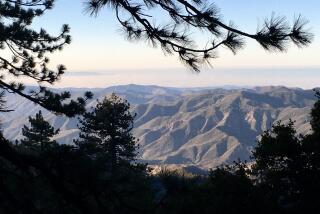More Logging Allowed in Black Hills
DENVER — Logging in Beaver Park in South Dakota’s Black Hills National Forest can continue now that environmentalists have lost their legal battle to block it.
U.S. District Judge Edward Nottingham said this week that he would not halt the work because a new logging law did not violate a 2000 settlement between the government and environmentalists that limited logging in the forest.
Senate Majority Leader Tom Daschle (D-S.D.) attached the legislation to an emergency spending bill last summer to exempt parts of the state from environmental regulations and allow more tree cutting to try to prevent wildfires.
Nottingham said Congress legally changed those regulations with its South Dakota exemption. He also said the 2000 settlement, negotiated by both sides and approved by the federal court, allows the government to change its forest management plan.
Stephen Novak, a lawyer for the Biodiversity Conservation Alliance, had argued that Daschle’s legislation shouldn’t be allowed to trump the pact.
The alliance, along with several environmental groups including the Sierra Club, had negotiated a change to the settlement earlier this year to allow limited logging to prevent wildfires. The revised settlement was added to the spending bill and included a provision to exempt those projects from environmental review, including public comment.
Sierra Club spokesman Steve Smith said that relaxing those regulations is a bad precedent but that the legislation still limits logging and sets aside 3,600 acres as wilderness. The group did not take a position in the lawsuit.
The Beaver Park project, which began last month, was temporarily halted Nov. 14 after the first hearing on the lawsuit.
Nottingham wanted to give more time to environmentalists to respond to a last-minute brief submitted by the government.
A fire that forced the evacuation of the gambling town of Deadwood scorched 11,589 acres in July. Then, a 13,700-acre fire that erupted in August destroyed three homes and forced hundreds of residents to flee their homes near Mt. Rushmore in the southern Black Hills.
More to Read
Sign up for Essential California
The most important California stories and recommendations in your inbox every morning.
You may occasionally receive promotional content from the Los Angeles Times.










